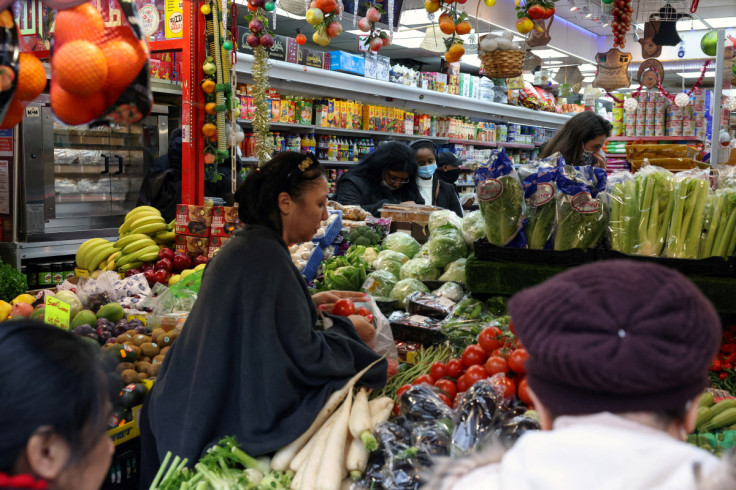Half of Britons changing food-buying habits to cope with cost-of-living crunch
Almost half of Britons are changing what they buy to feed their families as they try to navigate a worsening cost-of-living crisis, according to survey data published on Wednesday.

Almost half of Britons are changing what they buy to feed their families as they try to navigate a worsening cost-of-living crisis, according to survey data published on Wednesday.
The research from food assurance scheme Red Tractor and polling firm YouGov found that 46% of people are changing their buying habits, with 30% purchasing less meat and 13% buying less fruit and vegetables.
They said 24% of shoppers are trading down, or buying what they perceive to be lower quality products.
Their research also showed an 8% dip in trust in UK food since Red Tractor published its first Trust in Food Index last year, with trust in supermarkets down 20%.
In other findings, the research found that people believe Brexit is having an impact on food, with 26% of respondents saying they felt the quality of food in the UK has been falling over the last two years.
Furthermore, 43% of consumers believe that new trade deals will reduce standards of food in the UK further.
The research found the United States and India - both countries with which the UK government is seeking trade deals - have very low levels of trust, with 27% and 18% of consumers trusting food that originates in those countries respectively.
Industry data published on Tuesday showed UK grocery inflation hit 9.9% in the four weeks to July 10, adding 454 pounds ($545) to Britons' annual bills.
Market researcher Kantar said as prices rise, Britons are increasingly turning to discounters and own-label products to keep a lid on the cost of their weekly shop.
Food inflation could reach 15% this summer and 20% early next year, according to some forecasts.
($1 = 0.8324 pounds)
Copyright Thomson Reuters. All rights reserved.




















